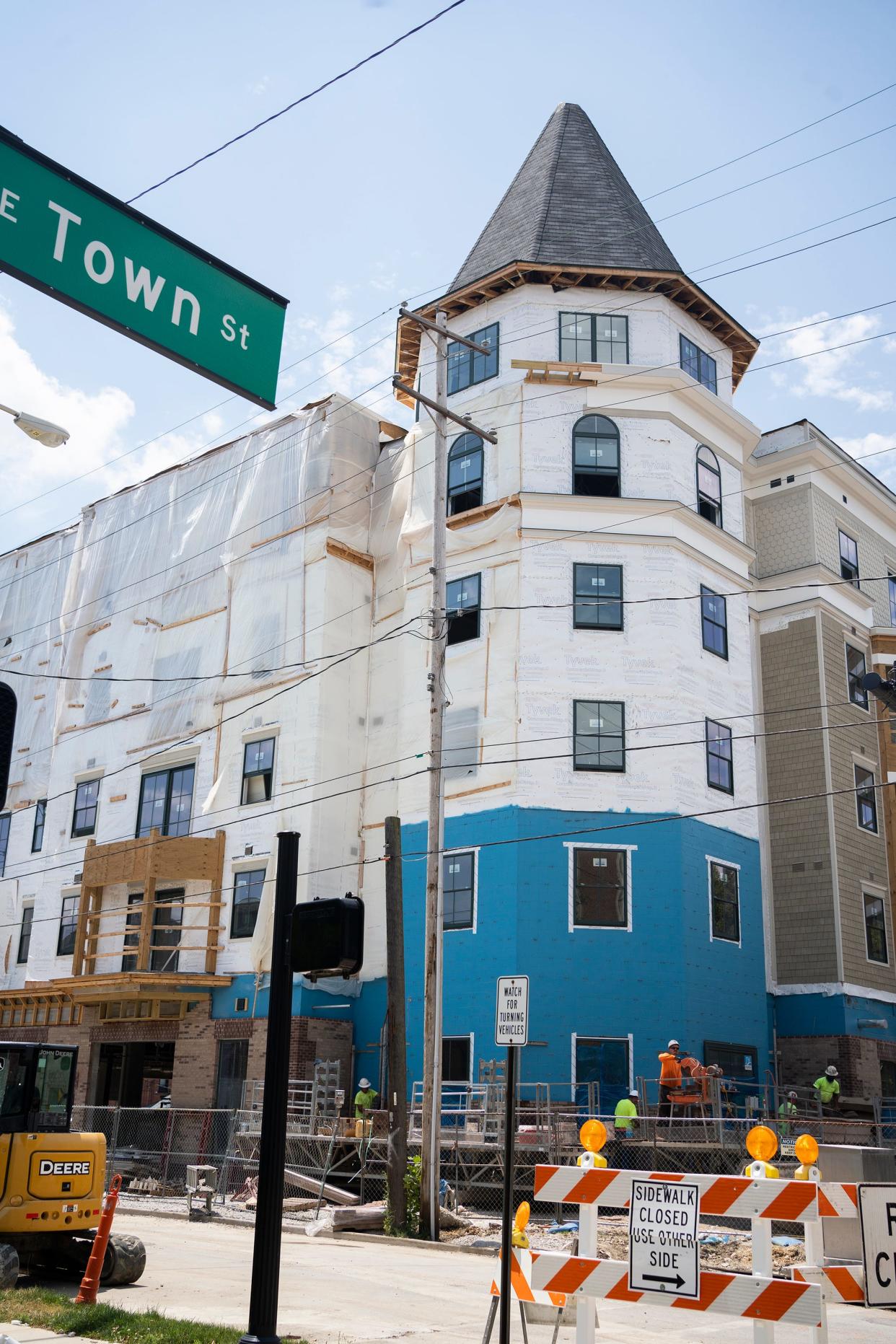Columbus expands some tax breaks to entire city to help double home construction

The Columbus City Council on Monday vastly expanded tax abatements for new housing, part of an effort to double the number of homes built in the city.
In a unanimous vote, the council agreed to create a "Community Reinvestment Area" for the entire city, which grants a 100% tax break for new residential developments for 15 years. The tax break largely applies to apartment complexes that designate at least some units for affordable housing based on income.
Council members and city officials said the policy is necessary to help address the city's housing shortage by encouraging construction of more houses and apartments.
"We’re hitting that moment in central Ohio where we need to pull out all the stops to get housing built," said Erin Prosser, the city's assistant director of housing strategies.
Prosser said the city is expecting 5,545 new residences to be built this year, down from 6,177 last year.
She acknowledged that the main reasons for the decline aren't property taxes, but instead are rising material, labor and borrowing costs. Still, she said the city must use "all the tools that are available."
Owners must apply for the tax breaks.
Prosser said the tax abatement expansion, along with other city changes such as a new zoning code, can help achieve Mayor Andrew Ginther's goal of doubling the number of new homes built in the city.
Lark Mallory, president and CEO of the Affordable Housing Trust for Columbus and Franklin County, welcomed the expansion of the tax abatement boundaries to help offset the rising costs of building homes.
"What used to pencil out no longer pencils out," she said. "We're seeing a lot of projects shelved right now. ... This could potentially be the difference between a project working and not working."
Mallory said expanding the boundaries will allow low-income housing projects to be built throughout the city instead of concentrating them in the city's existing Community Reinvestment Areas, which are mostly in older, less-affluent parts of town.
City officials noted that several other Ohio cities grant citywide property tax breaks on new residences, including Akron, Canton, Cincinnati, Cleveland and Findlay.
Central Ohio already leads the state in granting tax breaks. In tax year 2022, $5.82 billion in property was abated in Franklin County, more than in Hamilton and Cuyahoga counties combined, The Dispatch previously reported.
The new tax abatements would apply everywhere in the city except where other tax-incentive programs already operate, such as the Easton, Polaris, Downtown and Rickenbacker International Airport areas.
The tax breaks would apply only to projects that include affordable homes, except in Franklinton and Linden, where owner-occupied new homes, regardless of affordability, would qualify for the tax break.
Single-family homes elsewhere would be eligible for tax breaks if they are occupied by residents making no more than 120% of the area median income, which is about $55,550 for a one-person household or $71,450 for a three-person household.
To qualify for the abatements, most apartment projects would have to reserve 20% of units for those making no more than 80% of the area median income. Apartments are considered "affordable" if they consume no more than 30% of a resident's income.
City Council member Shayla Favor conceded that tax breaks are "not always popular" policies, but said it is necessary to try to remedy the city's housing shortage.
The city has not calculated how much potential tax revenue could be lost to the city or schools with the expansion of the abatement policy. But Prosser and Council President Shannon Hardin said the policy would not take tax dollars away because it only applies to projects not yet built.
"This costs nothing," said Hardin. "Expanding the map cuts nothing from current rates paid. All new projects ... still pay baseline property taxes; the abatement is only on increase in value."
Hardin acknowledged that the new policy does not help longtime homeowners struggling to pay property taxes to keep their properties, but said it is only one piece of the city's efforts to make housing more affordable for all.
In addition to rezoning changes, the city is spending $200 million in bonds approved for affordable housing and has invested $21 million in other initiatives aimed at affordable housing.
jweiker@dispatch.com
@JimWeiker
This article originally appeared on The Columbus Dispatch: Columbus Council seeks to double new home builds with new tax breaks

